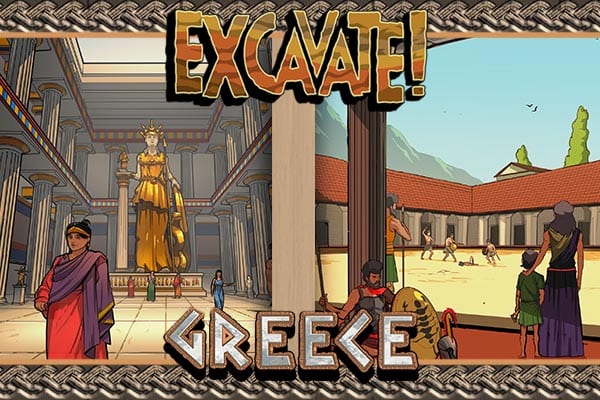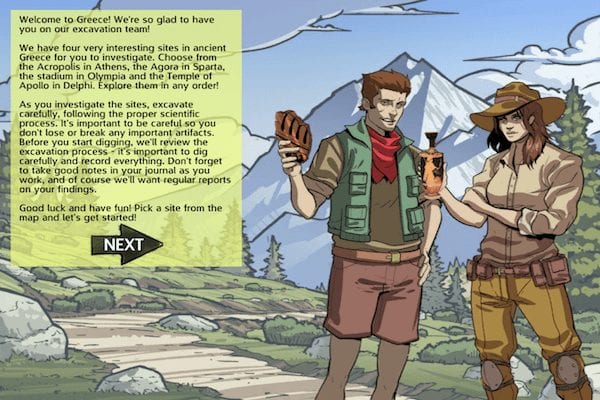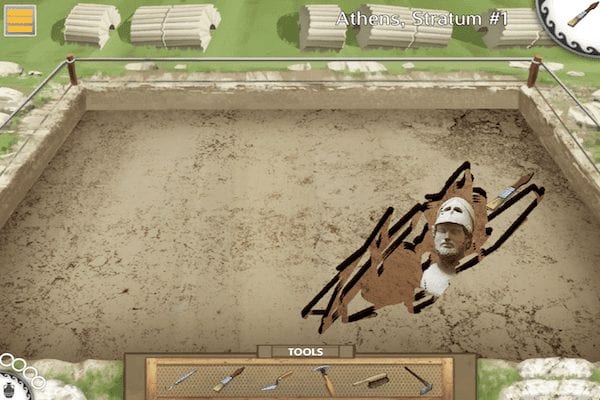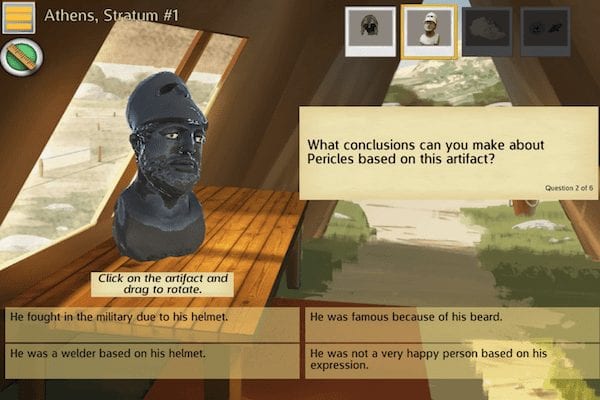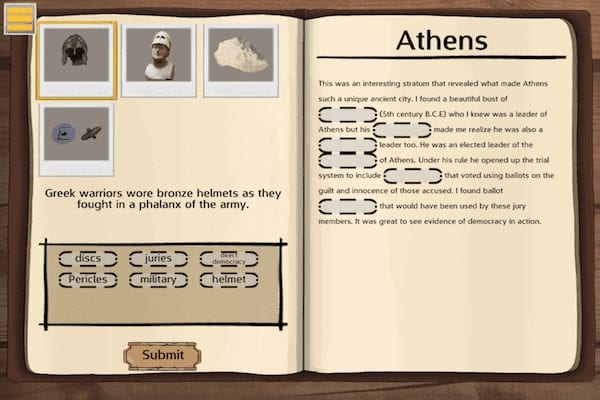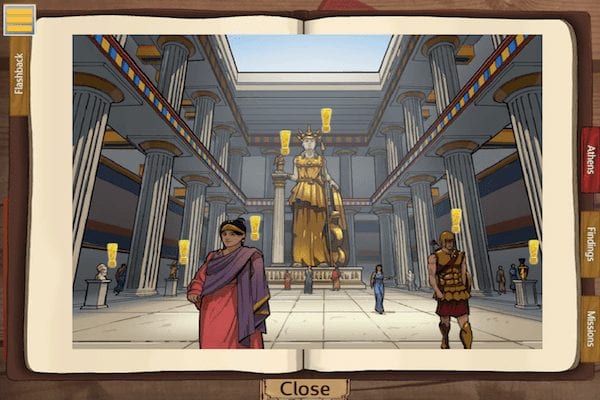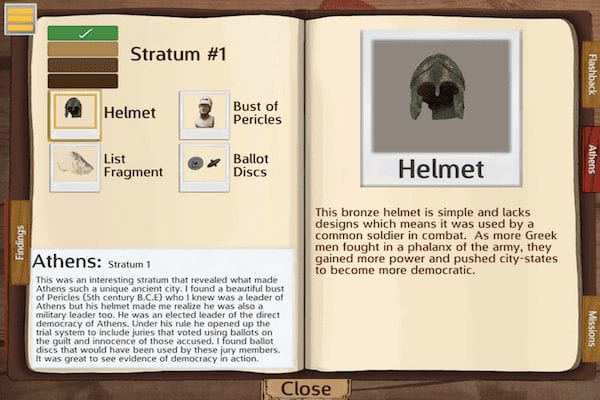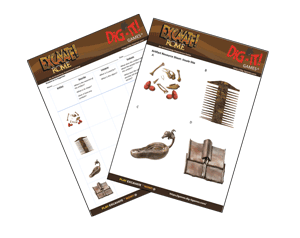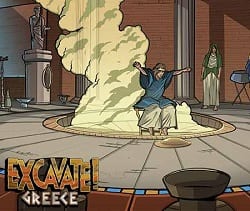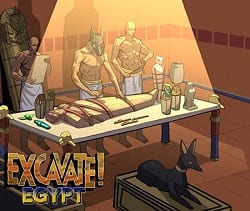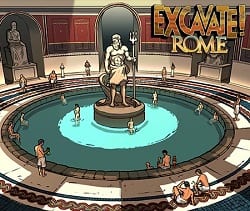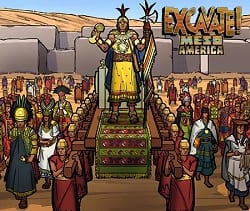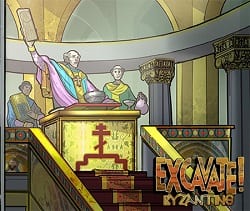Excavate! Greece
Apply C3 skills in this middle school social studies game that brings the ancient civilization of Greece to life through Archaeology.
Game Overview
Piece together the daily life of ancient Greece in this immersive social studies educational game! Use archaeological thinking to apply C3 skills of Inquiry and Evaluation of Evidence to aspects of Greek daily life not covered in textbooks. Excavate and analyze four significant locations to make connections and deduct facts about the people who lived, worked and played there.
Explore Athens and Sparta, city-states that highlight very different lifestyles and social differences. Investigate Delphi, a religious temple to the god Apollo. Examine the stadium in Olympia to gain a deeper understanding of the ancient Olympic games. Visit the sites in any order; your progress will be recorded in journals that log collected artifacts, field notes and achievements. At each location, make meaning of how artifacts were used through a series of analysis questions and reports that help you consider the historical context of the primary source artifacts to make connections.
Finally, players see each site come alive as artifacts populate an historically accurate image of Greek life.
Featured Learning Goals:
- Explore the significance of Apollo’s Temple in Delphi
- Gain a new perspective on the Olympic Games
- Distinguish the roles of women and men in ancient Greek society
- Compare and contrast the lifestyles of Athens and Sparta
- Piece together daily life
- Describe the lifestyle and role of gods and goddesses in Roman society
- Explain architectural innovations that were used to build temples and stadiums
Curriculum Materials
- Teacher’s Guide – a step-by-step guide for game-play as well as a resource containing all content and answers. (2 Files – Excavate Overview & Greece Content Guide)
- Inquiry-Based Analysis Lesson (D-I-E) – Activate student interest before playing Excavate! Greece by inviting students to describe artifacts and hypothesize their use in ancient Greece. Use the D-I-E lessons to record observations during game-play and to check their hypotheses for accuracy. It is a fun way to prepare and engage with content while playing Excavate! Greece. (Answer sheet included)
- Artifact-Based Question Prompt (ABQ) – Each location in Excavate! Greece culminates with a beautifully rendered scene that incorporates all excavated artifacts in an historically accurate scene. Use this scene combined with artifacts from the game to have your students answer a DBQ assignment that will demonstrate their learning. (rubric included)
C3 Framework for Social Studies Standards
- D2.Civ.1.6-8. Distinguish the powers and responsibilities of citizens, political parties, interest groups, and the media in a variety of governmental and nongovernmental contexts.
- D2.Civ.2.6-8. Explain specific roles played by citizens (such as voters, jurors, taxpayers, members of the armed forces, petitioners, protesters, and office-holders).
- D2.Eco.1.6-8. Explain how economic decisions affect the well-being of individuals, businesses, and society.
- D2.Eco.4.3-5. Explain why individuals and businesses specialize and trade.
- D2.Geo.6.6-8. Explain how the physical and human characteristics of places and regions are connected to human identities and cultures.
- D2.Geo.7.3-5. Explain how cultural and environmental characteristics affect the distribution and movement of people, goods, and ideas.
- D2.His.9.3-5. Summarize how different kinds of historical sources are used to explain events in the past.
- D2.His.3.6-8.Use questions generated about individuals and groups to analyze why they, and the developments they shaped, are seen as historically significant.
Common Core Standards
- RI.6.10 – By the end of the year, read and comprehend literary nonfiction in the grades 6-8 text complexity band proficiently, with scaffolding as needed at the high end of the range.
- RI.6.7 – Integrate information presented in different media or formats (e.g., visually, quantitatively) as well as in words to develop a coherent understanding of a topic or issue.
- RH.6-8.1 – Cite specific textual evidence to support analysis of primary and secondary sources.
- RH.6-8.4 – Determine the meaning of words and phrases as they are used in a text, including vocabulary specific to domains related to history/social studies.
- RH.6-8.7 – Integrate visual information (e.g., in charts, graphs, photographs, videos, or maps) with other information in print and digital texts.
- CCRA.R.1 – Read closely to determine what the text says explicitly and to make logical inferences from it; cite specific textual evidence when writing or speaking to support conclusions drawn from the text.
- CCRA.R.5 – Analyze the structure of texts, including how specific sentences, paragraphs, and larger portions of the text (e.g., a section, chapter, scene, or stanza) relate to each other and the whole.
- CCRA.R.10 – Read and comprehend complex literary and informational texts independently and proficiently.
GBLxAPI
The Excavate! Rome educational game includes the new GBLxAPI standard developed through the support of the National Science Foundation. GBLxAPI creates a common standard for analytics collection across game-based learning and other digital educational products. In the Excavate! Rome game, GBLxAPI is used to track student progress against C3 and ELA education standards in an easy to read format. Learn more about this standard and how it can help you evaluate your students’ learning at gblxapi.org.
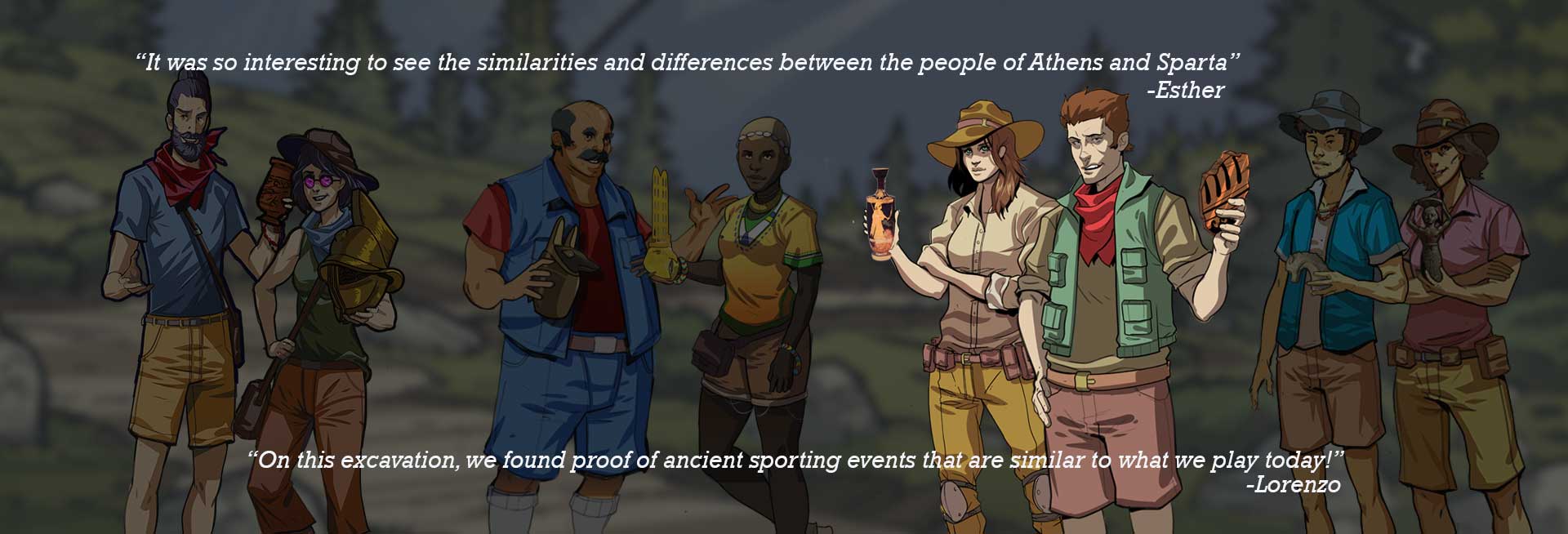
Platform Support
Six World Civilizations
Mesopotamia – Egypt – Greece – Rome – MesoAmerica – Byzantine


